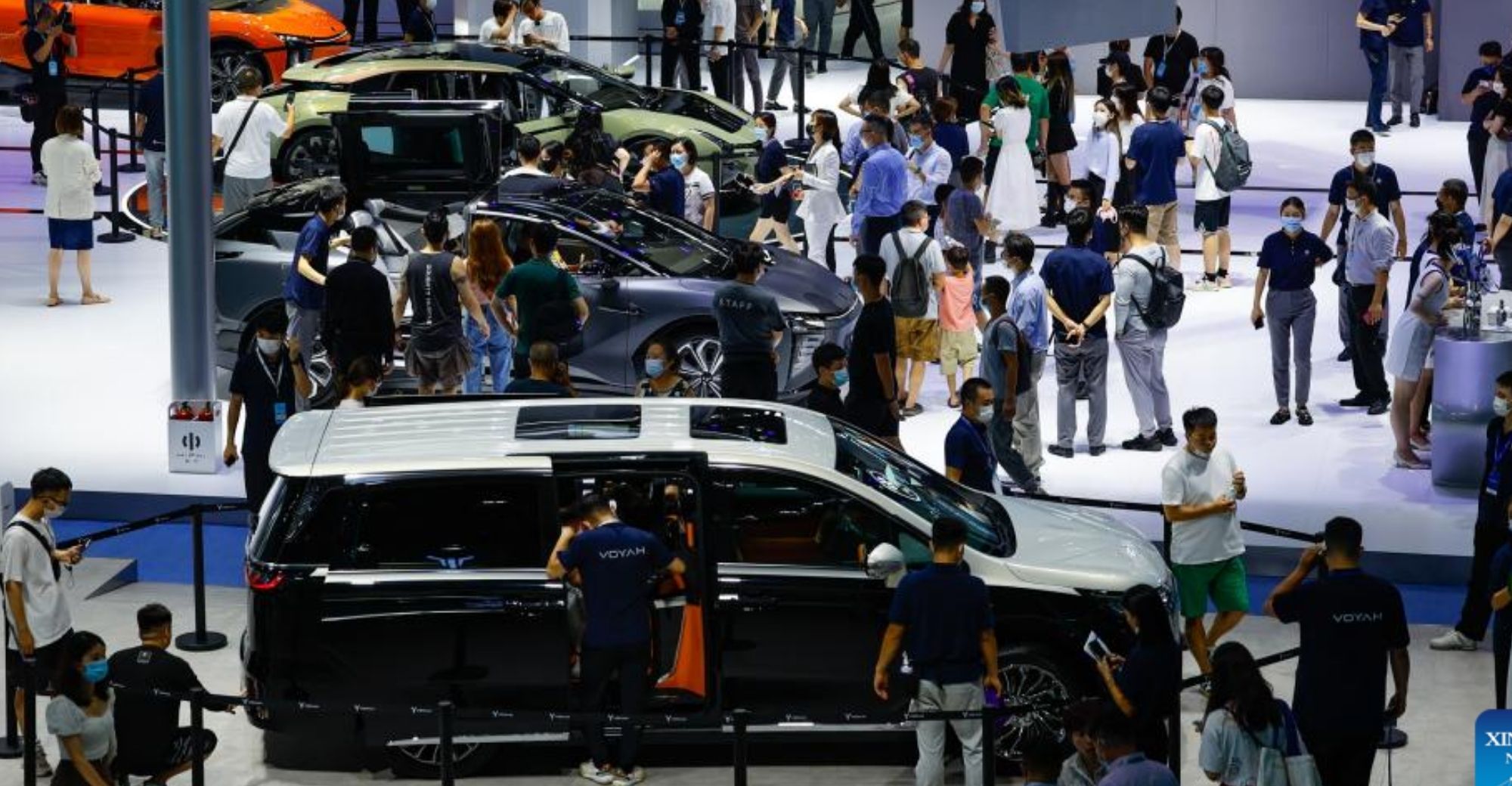The China Factor: Challenges For Premium Automakers Like BMW And Porsche

Table of Contents
Intense Competition from Domestic Chinese Brands
The rise of domestic Chinese brands is arguably the most significant challenge facing premium automakers like BMW and Porsche. Companies like Geely, BYD, and NIO are no longer niche players; they are aggressively competing in the premium segment, leveraging technological advancements and aggressive pricing strategies to gain market share.
-
Encroaching Market Share: BYD, for instance, has consistently outperformed many established international brands in sales, demonstrating the significant shift in consumer preferences and market power. Geely's acquisition and development of brands like Volvo further underlines their ambition and capability in the premium segment. NIO's innovative battery-as-a-service model is disrupting the traditional ownership paradigm.
-
Technological Advancements: Chinese automakers are making rapid strides in electric vehicle (EV) technology, particularly in battery technology and autonomous driving features. Their EVs often boast longer ranges and more advanced features at competitive price points, directly impacting the appeal of established brands.
-
Government Support: Government subsidies and policies favoring domestic brands provide a considerable advantage. These incentives make EVs from Chinese manufacturers more affordable and attractive to consumers, putting further pressure on foreign competitors.
Navigating Regulatory Hurdles and Government Policies
The regulatory landscape in China presents a complex web of challenges for foreign automakers. Import tariffs, stringent emission standards, and localization requirements significantly impact profitability and strategic decision-making.
-
Emission Standards: China's increasingly stringent emission standards necessitate significant investments in research and development for EVs and hybrid vehicles, placing a burden on already high manufacturing costs.
-
Localization Requirements: The demand for localization – manufacturing cars within China – increases production costs and necessitates significant investments in local infrastructure and supply chains. This often requires partnerships with local companies, adding another layer of complexity.
-
Geopolitical Factors: Trade disputes or changes in geopolitical relations can significantly impact the business environment, leading to uncertainty and potentially hindering operations.
Understanding and Catering to Unique Chinese Consumer Preferences
Chinese luxury car buyers have unique preferences that differ significantly from those in Western markets. Understanding and catering to these preferences is paramount for success.
-
Brand Perception: Brand image and social status play a crucial role in purchasing decisions. Effective marketing strategies must resonate with the aspirations and values of this discerning consumer group.
-
Digital Marketing: China's highly developed digital landscape necessitates a strong online presence and effective digital marketing strategies, including the use of popular social media platforms like WeChat and Weibo.
-
Personalized Customer Experience: Providing exceptional customer service and after-sales support is crucial for building trust and loyalty among Chinese consumers. A tailored approach, recognizing individual needs and preferences, is increasingly important.
The Electrification Challenge and Infrastructure Development
China's commitment to electric vehicles is driving a rapid shift in the automotive landscape. However, this presents both opportunities and challenges.
-
EV Competition: The Chinese EV market is incredibly competitive, with both domestic and international brands vying for a share. Premium automakers must offer compelling EVs with advanced technology and competitive pricing to stand out.
-
Charging Infrastructure: The development of a robust charging infrastructure is crucial for widespread EV adoption. Addressing range anxiety and ensuring convenient charging access is essential for success.
-
Battery Technology: Continuous innovation in battery technology is crucial to overcome range limitations and improve the overall consumer experience with electric luxury vehicles.
Conclusion
The China factor represents a confluence of significant challenges and substantial opportunities for premium automakers like BMW and Porsche. Successfully navigating this complex market requires a multifaceted approach: understanding unique consumer preferences, adapting to stringent regulations, and effectively competing against increasingly sophisticated domestic brands. The rewards for those who successfully overcome these hurdles are immense, as the Chinese luxury car market continues its remarkable growth. Want to delve deeper into the complexities of the China factor and its impact on premium automakers? Explore further resources and share your perspective in the comments below.

Featured Posts
-
 Le Clash Ardisson Baffie Retour Sur La Phrase Essaie De Parler Pour Toi
May 25, 2025
Le Clash Ardisson Baffie Retour Sur La Phrase Essaie De Parler Pour Toi
May 25, 2025 -
 Eldorado The Bbc Soap Opera That Failed Before It Began
May 25, 2025
Eldorado The Bbc Soap Opera That Failed Before It Began
May 25, 2025 -
 Alex De Minaurs Madrid Open Exit Straight Sets Defeat And Swiateks Victory
May 25, 2025
Alex De Minaurs Madrid Open Exit Straight Sets Defeat And Swiateks Victory
May 25, 2025 -
 Apres Laurent Baffie Thierry Ardisson Revele Sa Verite Sur Tout Le Monde En Parle
May 25, 2025
Apres Laurent Baffie Thierry Ardisson Revele Sa Verite Sur Tout Le Monde En Parle
May 25, 2025 -
 Leon Thomas And Flo This Weeks Must Hear R And B
May 25, 2025
Leon Thomas And Flo This Weeks Must Hear R And B
May 25, 2025
